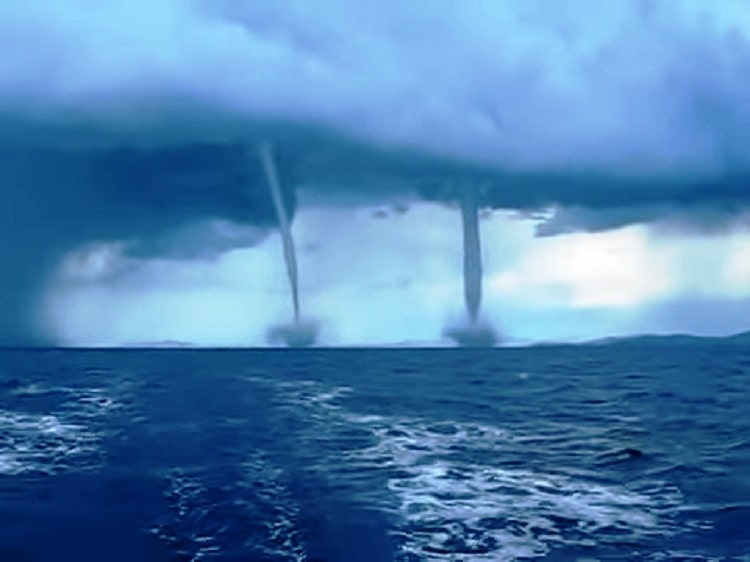Waterspouts are tornadoes that form over water or that move through the land into water, appearing as funnel-shaped clouds that seem to descend from the sky into the sea, also known as Tornadic waterspouts. Like tornadoes formed on the land, Waterspouts are also associated with deadly thunderstorms, huge hail, strong winds, and often dangerous lightning, that is, totally life-threatening for ships and boats running in the water. The size of Waterspouts may vary from just a few feet to several hundred feet wide.
There are many such incidents recorded in history in which many boats and ships were sunk due to Waterspouts. Scientists speculate that waterspouts are responsible for the phenomenon of rain of frogs and fish, but this has never been certainly observed or recorded. Because if this were the case, why would there only be the rain of fishes and frogs, because waterspouts would have even pulled up other species along with them and rain of mixed marine creatures would have been seen.
Waterspouts have so far proved to be less dangerous than land tornadoes, the reason being that the human population has settled on land rather than over water. These intense columnar vortexes can occur anywhere in the world's coastal regions, according to the scientific description there is no particular place where they are more likely to occur. Many times more than one Waterspout can be seen at once as about 12 waterspouts were spotted over the Black Sea in the Russian city of "Sochi" at the same day.
There are mainly two types of waterspouts: Fair-weather waterspouts and Tornadic waterspouts. Fair-weather waterspouts formed in calmer weather as they develop only over open water, forming at the surface and actually ascending skywards towards the clouds. Such waterspouts are not generally connected with thunderstorm-like conditions. On the other hand, tornadic waterspouts can often start as tornadoes on land and then move over water, forming even in severe thunderstorms over a body of water, wreaking havoc with strong winds and intense lightning.














0 comments:
Post a Comment